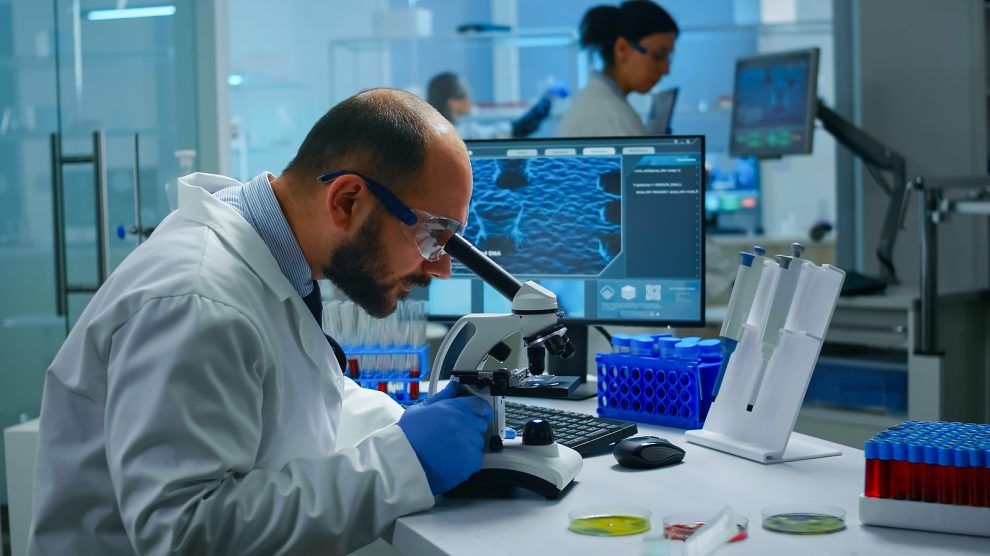Healthtech start-ups often find themselves struggling to navigate a tightly-regulated environment and gain access to expertise. Health Venture Lab, a European accelerator, based in Hungary is helping them overcome these hurdles.
Few programmes in the European health tech start-up calendar carry as much clout as Reactor, a three-month-long remote programme for early-stage start-ups and entrepreneurs who want to develop their business competencies and health-related business ideas.
- Better public-private cooperation must be the lesson learnt from Covid-19
- Not using AI in healthcare will soon be malpractice
- Warsaw Health Innovation Hub set make a ‘Polish Medical Valley’ a reality
Graduates of the programme last month had the chance to showcase their innovations at Demo Day, a now annual event that provides an additional boost for start-ups looking to break into the enormously competitive healthtech sector.
“It’s challenging to start a business, especially in the healthcare industry, and it’s even more difficult to scale it up,” says Daniel Szemerey, co-founder and CEO of Health Venture Lab (HVL), the Hungary based accelerator which organises the Reactor programme in partnership with GE Healthcare.
“To manoeuvre in this highly-regulated environment, entrepreneurs need support from the ecosystem and corporations. HVL and our partners want to see them thrive, so we offer market insights that they would otherwise not be able to receive.”
In order to prepare the Reactor’s latest cohort – which took in 15 projects from across 12 countries – for this year’s Demo Day, teams were immersed for weeks with mentors and over 30 GE Healthcare experts.
These shared vital know-how and experience across over 100 one-on-one consultations spread across four sprints, lasting 10 weeks in total.
Expertise
Andras Szilagyi, co-founder and CEO of IT-MEDicine, a Hungarian company developing gynaecological diagnostic devices, says that it is this expertise that makes Reactor such a huge draw.
“A big plus of the Reactor programme is that it gave us an opportunity to meet with GE Healthcare experts. They work in the same field as us, but have decades of international experience in all areas: sales, software engineering, product development and legal issues,” he tells Emerging Europe.
Szilagyi believes that his firm emerged from the event equipped with a deeper understanding of the industry, its challenges, and the strategies needed to overcome these challenges.
“We received deep knowledge of the European healthcare sector and the marketing and sales of medical devices,” he says.
“The lectures and one-to-one discussions with experts widened our understanding of how we should act on the market and the specific things we should take care of.”
Szilagyi goes on to add that Reactor’s Demo Day was the perfect opportunity to network with fellow start-ups in the industry, an opportunity which many healthtech start-ups miss out on.
‘Colossal visibility’
Such views are echoed by Madara Kalnina-Kalnmale, managing director at LightSpace Technologies, a developer of 3D imagery for use in medicine.
“Overall [Reactor’21 Demo Day] gave us colossal visibility and the chance to meet the right people, and now we are working on exploring further collaboration opportunities.
“Usually it takes a long time to find the right people in huge corporations but the Reactor programme accelerated our road to a relevant division, key people, and it all happened at the right time and right place.”
With the Covid-19 pandemic accelerating the demand for technology-based healthcare solutions, initiatives like Reactor provide much needed guidance, particularly for firms in Central and Eastern Europe that often lack access to expertise and networks.
“We strive to involve more start-ups from the CEE region to help these young businesses grow rapidly, bringing new technologies, jobs and a competitive environment to their regions,” concludes Daniel Szemery.
Unlike many news and information platforms, Emerging Europe is free to read, and always will be. There is no paywall here. We are independent, not affiliated with nor representing any political party or business organisation. We want the very best for emerging Europe, nothing more, nothing less. Your support will help us continue to spread the word about this amazing region.
You can contribute here. Thank you.








Add Comment